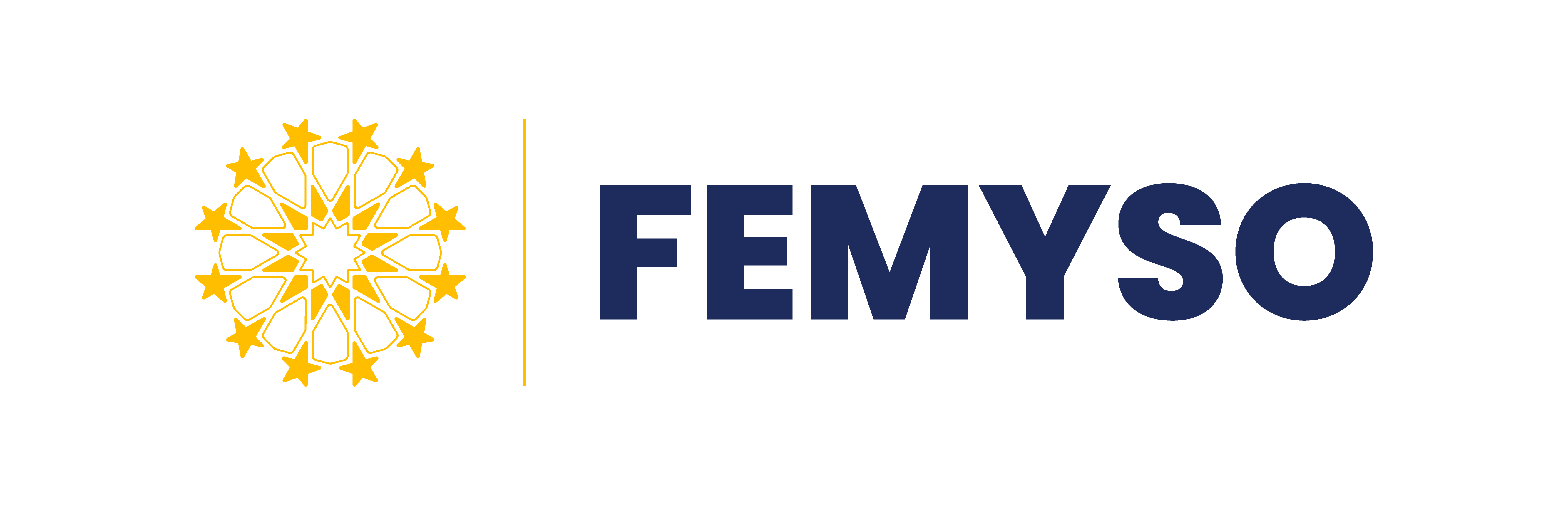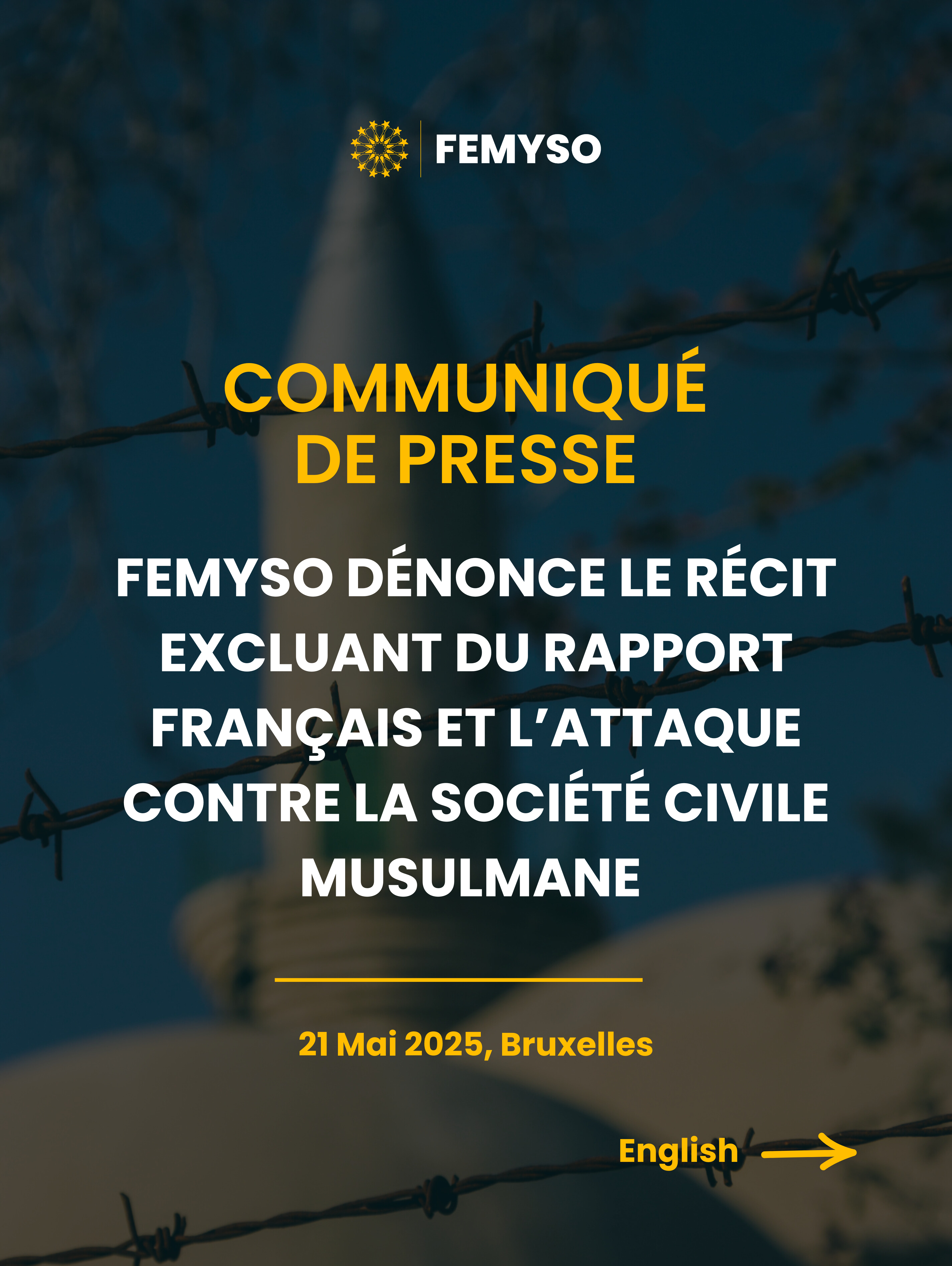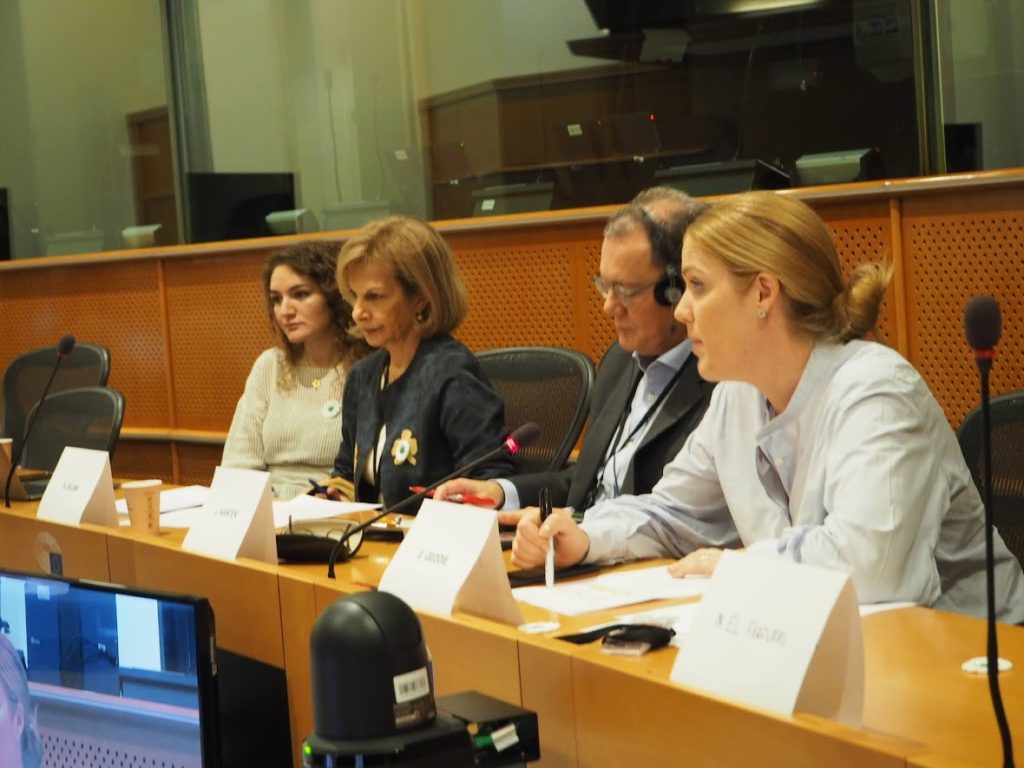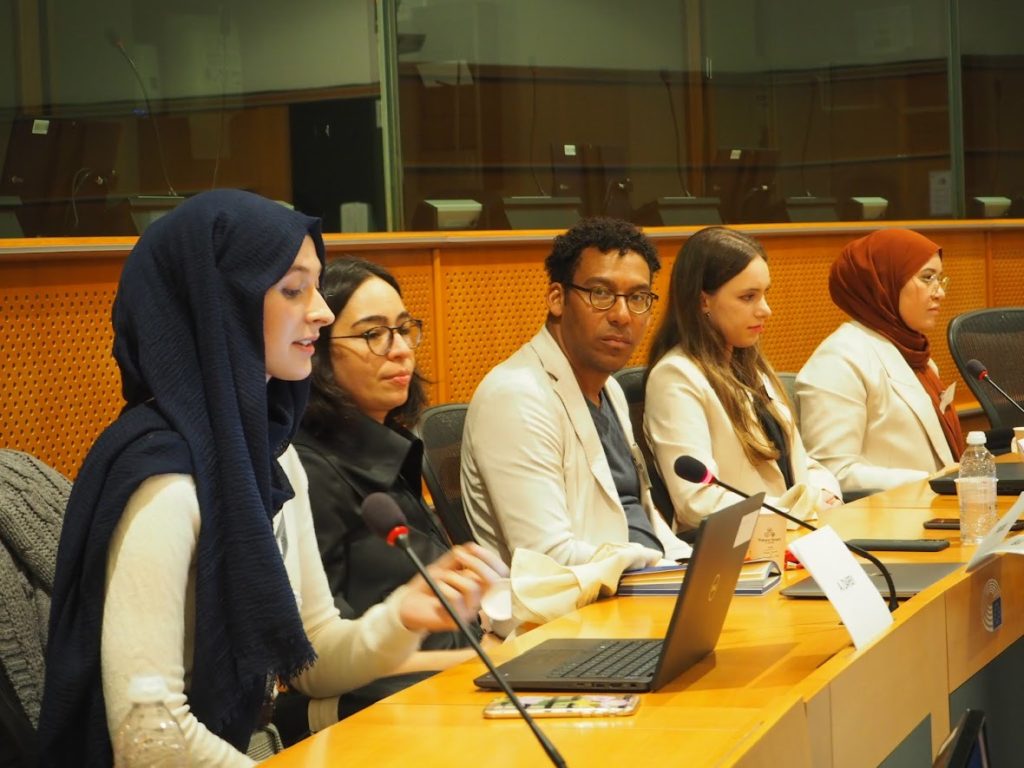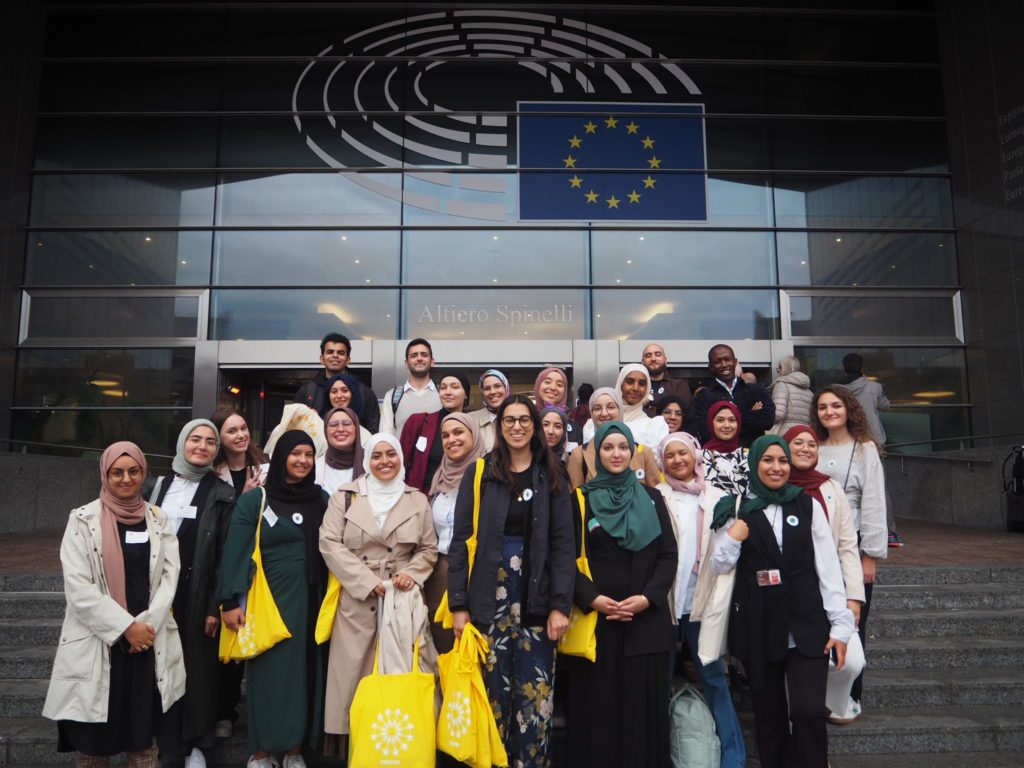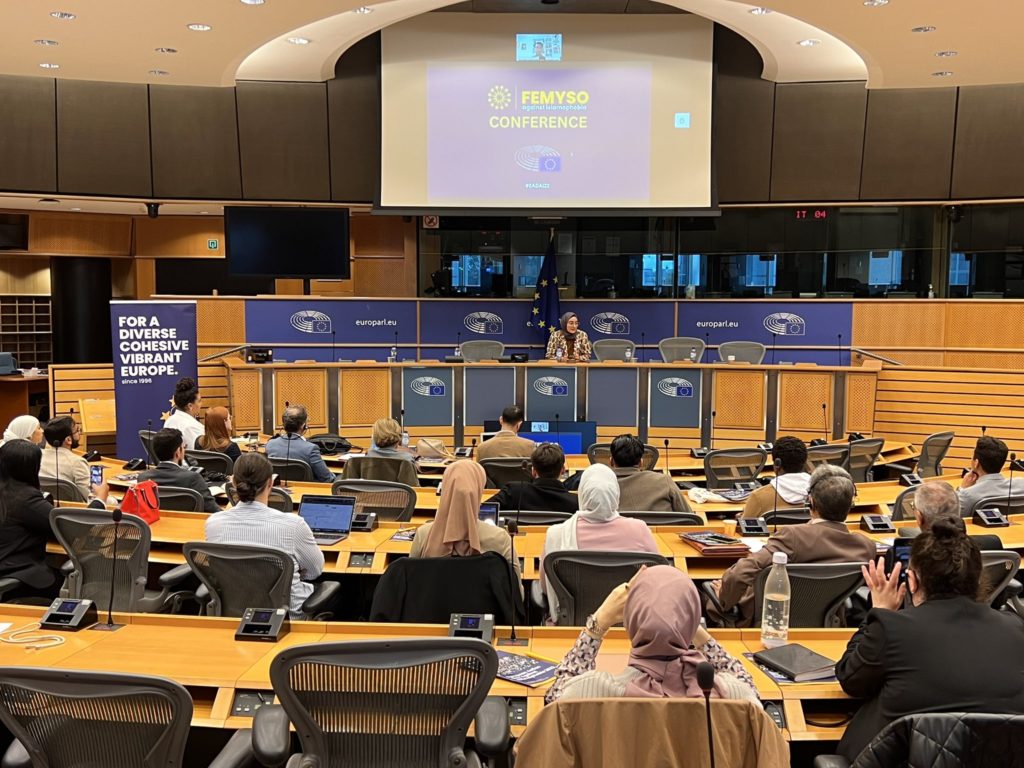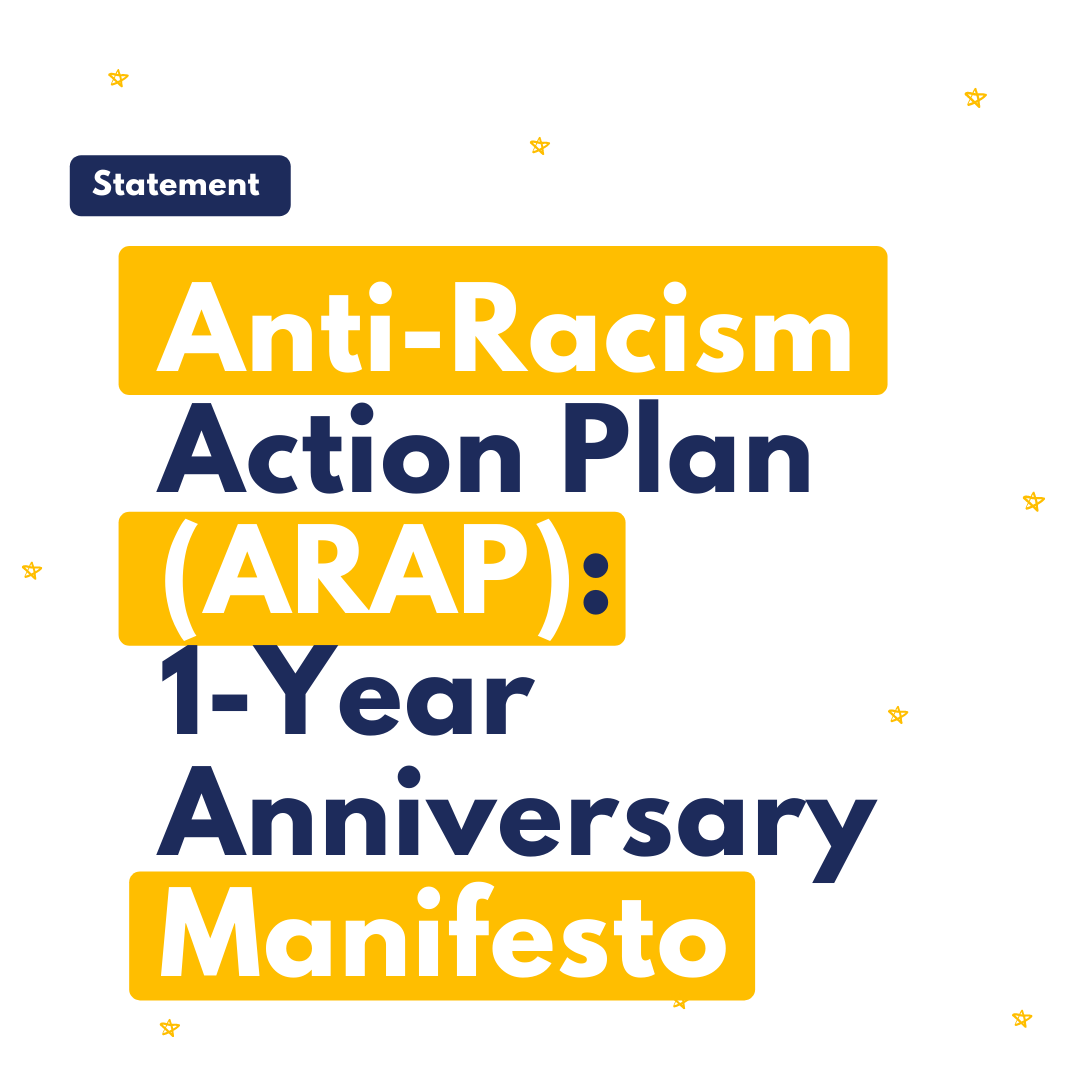(French below)
Brussels, Wednesday 21 May 2025
The Forum of European Muslim Youth and Student Organisations (FEMYSO) expresses deep concern at the French government’s recently published report and strongly condemns the defamatory and politically driven narrative which aims to delegitimise Muslim civil society actors — including our organisation — through vague and unsubstantiated allegations framed as national security concerns. We were never contacted or consulted in the drafting process- a glaring omission that mirrors the very exclusion the report attempts to normalise.
FEMYSO is a proudly youth-led and democratic organisation. We categorically reject any attempt to associate us with political entities and urge the French government to reconsider the long-term consequences of policies that alienate its own citizens. French Muslims are part and parcel of the national fabric – engaged, proud, and committed to their society.
It is particularly troubling that this report employs Islamophobic tropes and unsubstantiated claims at a time when constructive dialogue is most needed. We have seen similar rhetorical strategies in the public debate following the brutal murder of Aboubakar Cissé – moments when serious societal issues are avoided by stirring artificial controversies around terms like Islamophobia.
FEMYSO remains steadfast in our mission to promote dignity, pluralism, and democratic participation. Today we have sent an official letter to the French Minister of the Interior, inviting him to meet with us and our members, experience first-hand the civic work our organisation does across Europe. We believe that engagement and dialogue – not exclusion and suspicion – are the foundations of a diverse, cohesive and vibrant Europe.
We call upon European institutions, civil society actors, and all defenders of democratic values to stand firm against this dangerous trend to marginalise and silence European Muslim communities under the pretext of security.
[END]
1. FEMYSO (est. 1996) is a network organisation for 32 Muslim youth and student organisations across 20 European countries, and is the leading voice for European Muslim youth, developing and empowering them, and working to build a more diverse, cohesive and vibrant Europe.
2. FEMYSO responds to false allegations on links to Muslim Brotherhood
3. Smear campaign investigation statement:
4. FEMYSO New Yorker statement: https://femyso.org/femyso-new-yorker-statement/
5. Further clarifications on our organization and its governance can be found on the FAQ page.
6. For more information or requests please email media@femyso.org
COMMUNIQUÉ DE PRESSE
FEMYSO dénonce le récit excluant du rapport français et l’attaque contre la société civile musulmane
Bruxelles, mercredi 21 mai 2025
Le Forum Européen des Organisations Musulmanes Étudiantes et de Jeunesse (FEMYSO) exprime sa profonde inquiétude face au rapport récemment publié par le gouvernement français et condamne fermement le récit diffamatoire et politiquement motivé visant à délégitimer les acteurs de la société civile musulmane – y compris notre organisation – à travers des allégations vagues et non fondées, présentées sous couvert de préoccupations sécuritaires. Nous n’avons jamais été contactés ni consultés dans le cadre de l’élaboration de ce rapport – une omission flagrante qui reflète l’exclusion même que ce document cherche à normaliser.
FEMYSO est une organisation fièrement dirigée par des jeunes et fondée sur des principes démocratiques. Nous rejetons catégoriquement toute tentative de nous associer à des entités ideologiques et appelons le gouvernement français à reconsidérer les conséquences à long terme de politiques qui marginalisent ses propres citoyens. Les musulmans de France font partie intégrante du tissu national – engagés, fiers et investis dans leur société.
Il est particulièrement préoccupant que ce rapport reprenne des clichés islamophobes et des affirmations sans fondement, à un moment où le dialogue constructif est plus que jamais nécessaire. Nous avons observé des stratégies rhétoriques similaires dans le débat public qui a suivi l’assassinat brutal d’Aboubakar Cissé – des moments où des enjeux sociétaux réels sont évités en suscitant des controverses artificielles autour de termes comme l’islamophobie.
FEMYSO reste fermement engagé dans sa mission de promotion de la dignité, du pluralisme et de la participation démocratique. Aujourd’hui, nous avons adressé une lettre officielle au Ministre de l’Intérieur français, l’invitant à rencontrer notre organisation et nos membres, afin de découvrir directement le travail civique que nous menons à travers l’Europe. Nous croyons que l’engagement et le dialogue – et non l’exclusion et la suspicion – sont les fondements d’une Europe diverse, cohésive et dynamique.
Nous appelons les institutions européennes, les acteurs de la société civile et tous les défenseurs des valeurs démocratiques à résister fermement à cette tendance dangereuse de marginalisation et de réduction au silence des communautés musulmanes européennes sous prétexte de sécurité.
[FIN]
- FEMYSO (fondé en 1996) est une organisation de réseau regroupant 32 organisations de jeunesse et d’étudiants musulmans dans 20 pays européens. Il constitue la voix principale de la jeunesse musulmane européenne, œuvrant à son développement et à son autonomisation, et travaillant à construire une Europe plus diverse, cohésive et dynamique.
- Des précisions supplémentaires sur notre organisation et sa gouvernance sont disponibles sur notre page FAQ.
- Pour plus d’informations ou pour toute demande, veuillez écrire à: media@femyso.org
